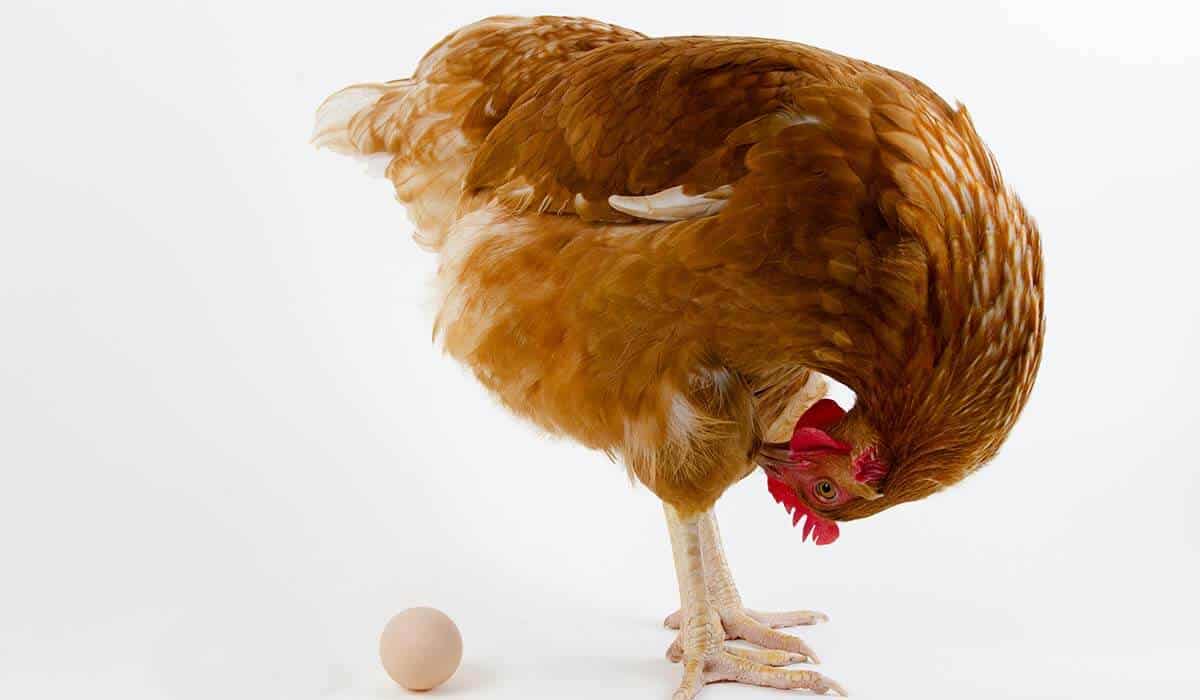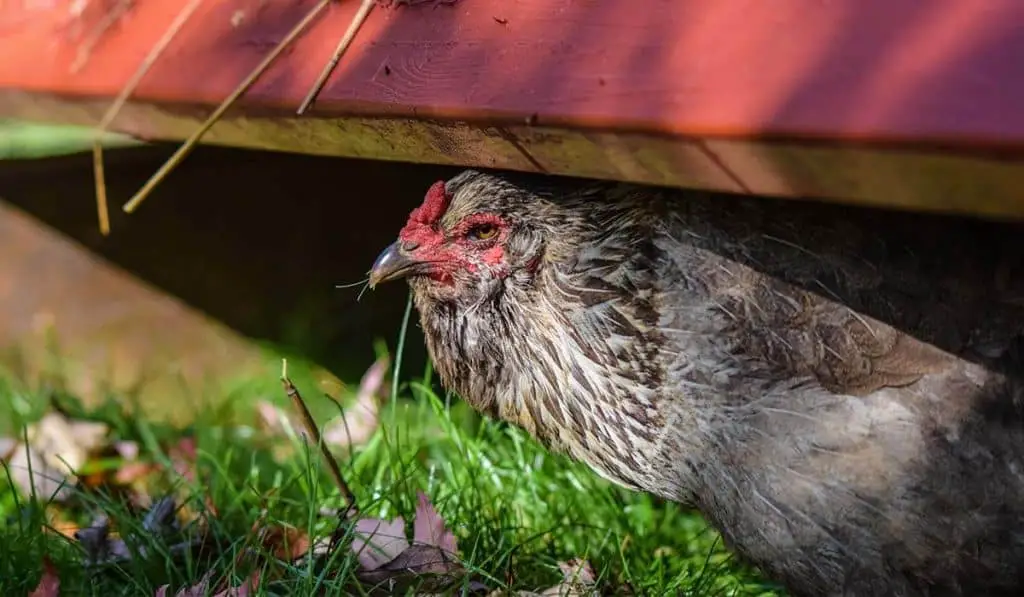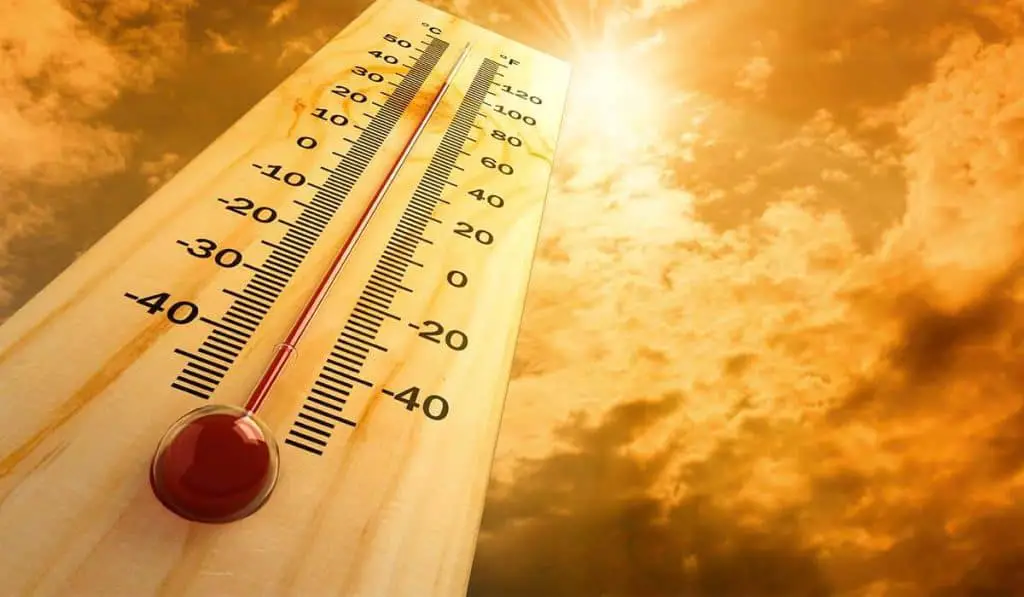The fluctuation in temperature can have an adverse effect on your pets and backyard animals. Chickens usually lay fewer eggs in fall and winter when the temperature falls, but do chickens lay fewer eggs in hot weather?
The production of the eggs in your backyard flock can increase and decrease based a change in feed, lighting, droppings, weather, housing arrangements, sickness, age, recent hatchings, and signs of predators.
This means that even if you have your chickens for quite some time, you shouldn’t expect to collect the same number of eggs every single day. In this article, we’ll explain why this happens and how the hot weather affects your chickens.

*This page contains affiliate links to products I recommend. If you purchase something from this page, I may receive a small percentage of the sale at no extra cost to you.
How Does the Heat Affect Chickens?

Although it’s well known that chickens will lay fewer eggs in winter, too high temperatures can also make chickens lay fewer eggs. Chickens prefer a temperature between 11 and 26 degrees Celsius to lay eggs, and if the temperature increases, they will stop laying eggs.
It’s essential to make sure that chickens have enough water and food all the time. They might need more water during the hot season to stay active.
When the temperature increases, chickens can be under a lot of stress. The production of eggs will decline gradually until some chickens stop laying eggs altogether. Some of them will also go through molting that happens due to stress. Chickens lose some of their feathers to help cool off their bodies.
How to Take Care of Chickens in Hot Weather
Very high temperatures can kill chickens. It’s common to see them less active when the weather is too hot, and they will try to stand outside, spread their wings, and pant to cool their bodies.
When the weather gets too hot, chickens might also stop eating. They will stand with their mouths open, panting their wings to help circulate the air around their bodies. If you feel that the chickens have stopped eating, your chickens might be in danger. Here are a few things that you can do:
- If possible, get heat-tolerant chickens that won’t mind the occasional increase in temperature. Andalusians and Leghorns are called Mediterranean breeds that have hard feathers and large combs to dissipate the heat. Some breeds are more tolerant of cold weather and will suffer more when the temperature is too high.
- Put the waterer in the shade. If the waterer is in the sun, the chickens will stop drinking and eventually die. If the water still feels too hot for your chickens, you can half fill the waterer and freeze it, then top it with room temperature water before setting it up for the chickens.
- Just like humans, chickens become weak when they lose minerals due to the extremely hot weather. You should consult the vet by adding electrolytes, vitamins, and minerals to their water, as this will keep them healthy.
- Pay attention to the chicken’s diet. Juicy fruits and vegetables provide your chickens with the needed nutrients and keep their bodies hydrated.
Keep the fruits and vegetables whole because cutting them will cause their juices to evaporate. You can also freeze veggies and fruits, then scatter them around for your chickens to peck. Your birds will evaluate the chilled snack.
- Avoid food like corn and starch that chickens would normally consume in cold weather. These types of food take longer to digest and affect the internal temperature of the body during the hot season.
- Make sure that chickens have a shaded area to hang out. If they usually like to hang out and roam in the sun, providing them with shade will be essential in hot weather. You can put a mesh tarp to cover part of the run if you feel that the weather is too hot.
- Provide your chickens with an area of cool loose dirt where your chickens will love to take dust baths. Dust cools off the body and will help your chickens cope with the high temperatures.
- The coop should be well-ventilated, and there should be enough windows to provide fresh cool air. Installing a cupola to pull the hot air out will decrease the internal temperature of the coop and keep it cool and safe for your chickens. You can also install a fan and make sure that it’s well covered to cool off the chickens when they’re inside the coop.
- If the coop feels too hot, you can leave ice cubes inside. The ice will melt to keep the coop cool, and the chickens will drink the cold water. You can also install a mister in the coop to spray water on the roof. Some chicken owners also choose to hose down the dirt in the run, as chickens love running water, especially in cold weather.
- You and your kids might be tempted to play and interact with your chickens during the summer holidays. However, playing with chickens makes them more active and increases the temperature of the body. It’s best to leave your chickens alone in the coop or play in a shaded area with minimum interaction on hot days.
Chickens and Changes in Light and Temperature

In fall and winter, the days are shorter, and chickens spend less time outside. They’re also exposed to less light. These factors combined lead to a decrease in the number of eggs laid by the chickens you keep.
Commercial breeders keep their chickens in controlled environments where they’re exposed to the same amounts of light and temperature. These chickens are likely to produce the same number of eggs all the time.
Chickens need at least 14 hours of daylight to have their ovaries stimulated enough to produce eggs. The older chickens are more likely to stop producing eggs when the day becomes shorter.
However, if you’re raising your chickens in a backyard and keeping them in a home-made coop, you will have little to no control over these factors, and the chickens will lay fewer eggs.
You can overcome this problem by installing an automatic light that switches on at sunrise to make sure that your chickens are getting the maximum amount of light and warmth. However, in most cases, the chickens need this natural break, and you can wait until the weather is warmer.
If you’re raising chickens for eggs, you can introduce young and new chickens to your flock in the spring. When the fall arrives and the temperatures start to drop, these younger chickens can make up for the decrease in egg production.
Chickens also go through the process of molting in the fall, where they start to lose their feathers to have them renewed. During molt, chickens usually stop laying eggs to renew their nutritional reserve and help prepare their bodies for winter.
During this period, the best thing to do is to let the molt run its course and not try to stimulate the chickens to lay more eggs in any way. You can also try to complement the chickens’ food by adding more additional nutrients like proteins to help their feathers grow fast. Once their feathers have grown, chickens will start laying as many eggs as they used to.
Wrap Up
Paying attention to your flock of chickens is crucial to make sure that all members are healthy. It’s quite normal to witness a decline in egg production when the temperature increases, although some breeds are more tolerant of the high temperatures.
It’s crucial to provide your chickens with access to clean water all the time. The chickens’ diet should also change and contain more veggies and fruits and less starch and corn.
During the hot season, you might need to make a few adjustments to your chickens’ play area and coop. Make sure that there’s enough shade in the backyard to keep the chickens protected. Install a fan or mister in the coop to keep the chickens safe.